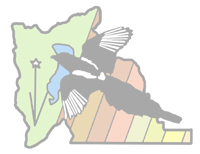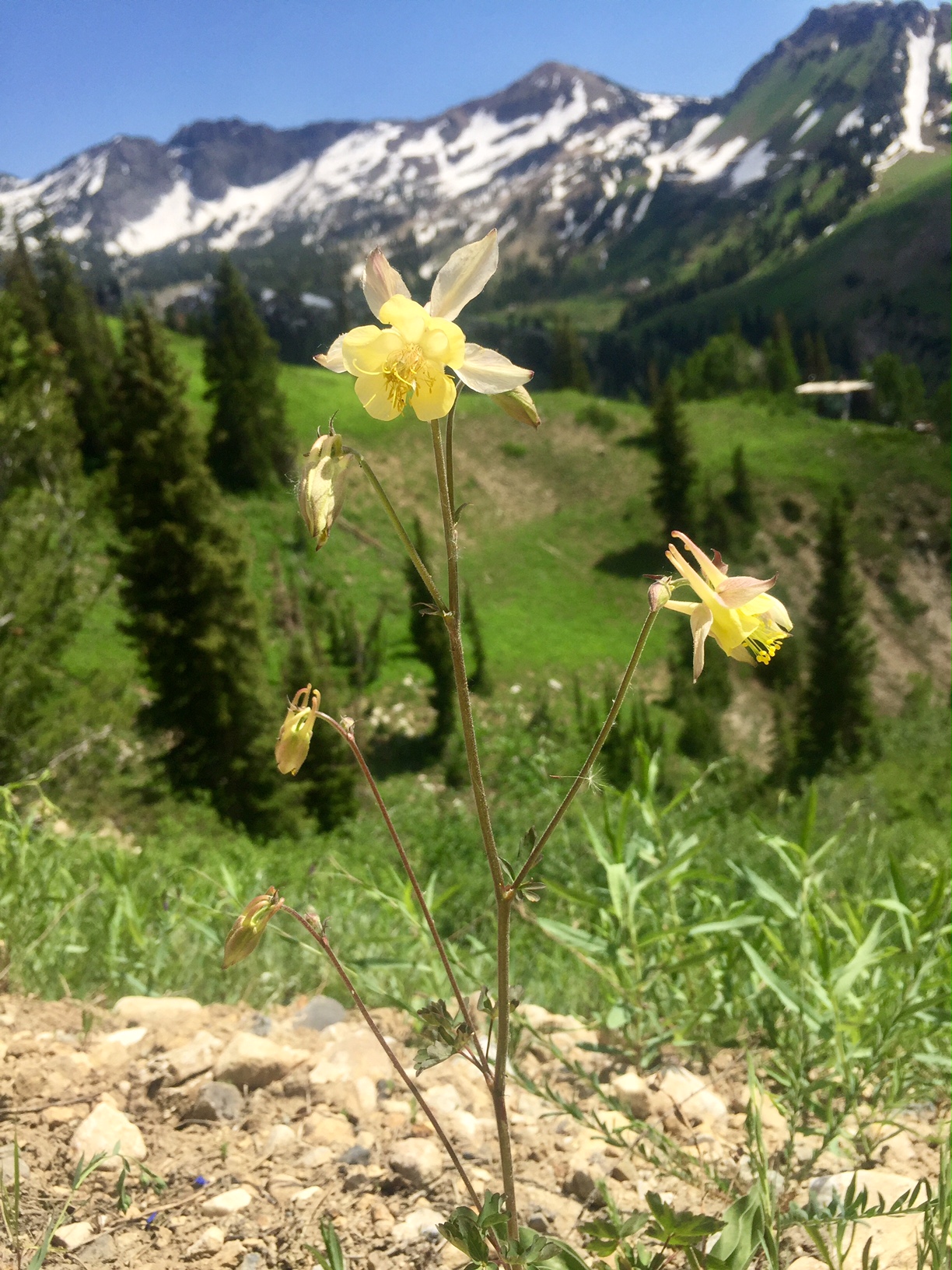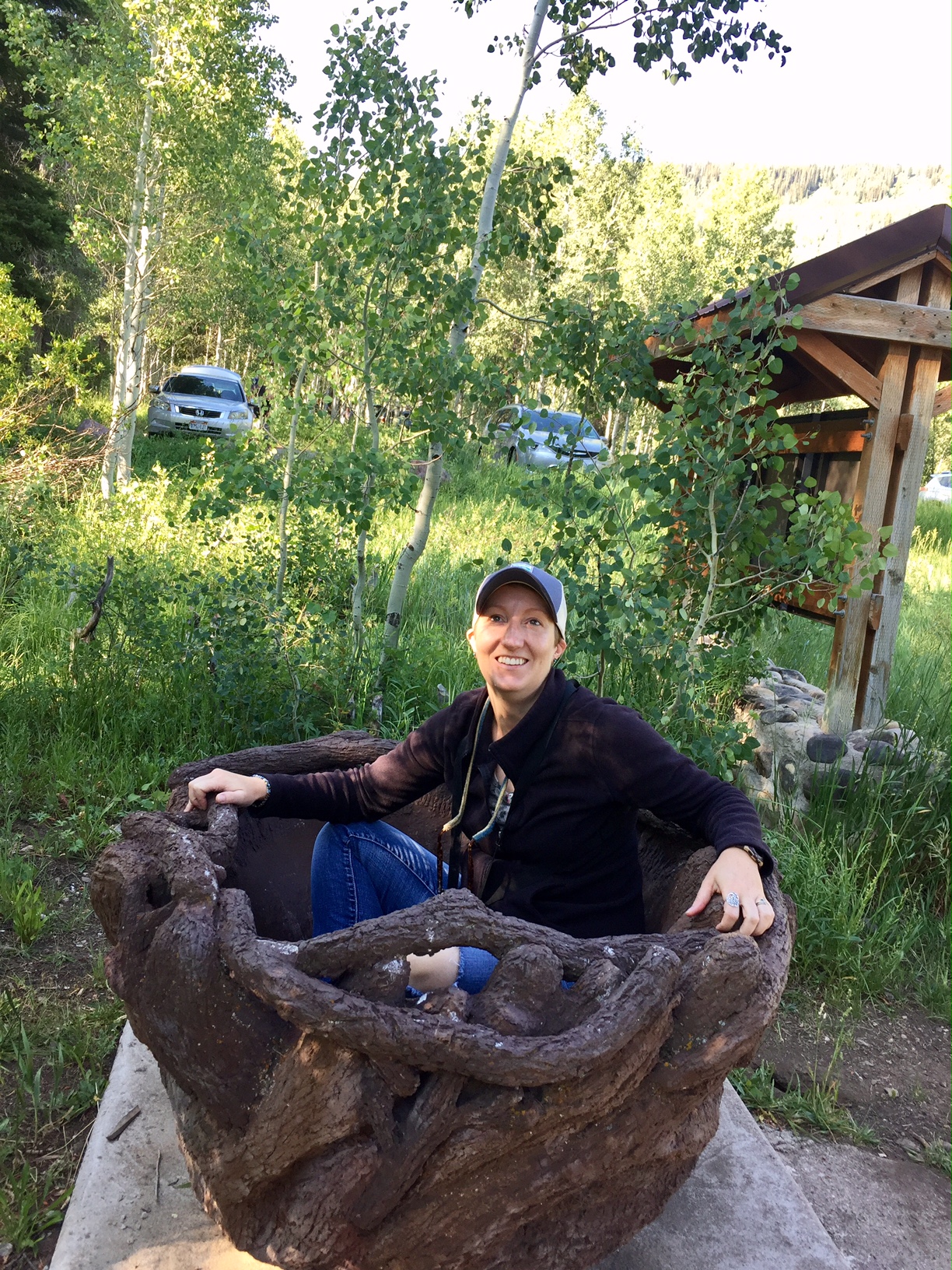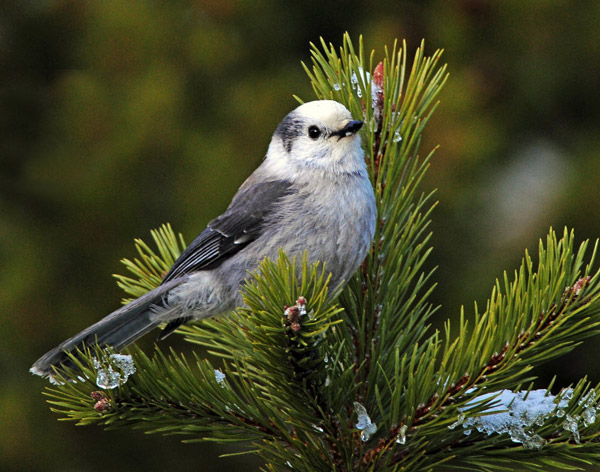Utah County Birders Newsletter
|
 |
Contents
August Meeting
Upcoming Field Trips
Captain's Log
Bird of the Month
Field Trip Report
Thursday, August 10th, 2017: Carol Nelson's
House, 7:00PM
Our meeting this month will be our annual end of
summer Potluck Dinner. Carol Jean Nelson has graciously offered the use of her
backyard. Come out and join us for an evening of food and visiting! Bring a dish
or dessert to share.
Carol Jean's address is 2831 Marrcrest West off of University Avenue in Provo near the Riverside Country Club. Her house is a one level red brick house and everyone is welcome to park along the street anywhere there is space available. Hope to see you all out there!
FIELD TRIPS:
Friday, Aug 4th, 2017: Uintas
We're going to make another trip up into the Uintas to see what we can see.
We're hoping for slightly smaller crowds on a Friday than we had on a Saturday.
Meet at the park and ride at the mouth of Provo Canyon at 6:30am. We'll plan on
being back mid-afternoon. Bring a lunch, bug spray, a rain jacket, and an
American the Beautiful pass or $6 cash to pay for the use fee.
Other August field trips are in the works, so stay tuned! They'll be posted on
the facebook page and the Utahbirdtalk hotline as information becomes available.
We are actively recruiting people to lead local half-day field
trips, any time, any place. If you would like to lead a field trip or if you
have any ideas for this year’s field trips, please contact Keeli at -
keeli.marvel@gmail.com
Utah County Birders
Captain’s Log: August
2017
by Keeli Marvel
Another month. Another bird. Last month I reported on recent additions to my
life list and I’m happy to report I finally got to add another species to my
life list and another one to my Utah List this month. Both of them have proven
to be quite the nemesis birds. Over the 4th of July holiday I headed up to Alta
mid-afternoon and spent some time hanging out at the town hall feeders. I didn’t
find my target bird, but I enjoyed watching Flickers, Red-naped Sapsuckers, and
House Wrens all bringing food to young in cavity nests in that area. After
giving up at the feeders, I hiked up Grizzly Gulch about a mile starting at the
trail at the info booth at the upper Alta Parking Lot. Despite the late
afternoon warmth, I picked up quite a few birds along that hike, including my
target bird – a male Calliope Hummingbird! I also got great looks at a
MacGillivray’s Warbler, Green-tailed Towhees, lots of House Wrens, and a Hairy
Woodpecker tending a loud fledgling.


Scenery near Alta, up Little Cottonwood Canyon
Keeli as a fledgling; Soapstone Campground, Uintas
My second lifer was one for my Utah list. On July 15, eight of us headed up the
Mirror Lake Parkway. The birding was a little slow – possibly due to the warm
temps and the throngs of people enjoying the slightly cooler temperatures of the
Uintas. We stopped at Soapstone CG, Washington Lake CG, Mirror Lake CG, and
walked around each for a while picking up a few fun birds including a female
Pine Grosbeak, an Olive-sided Flycatcher calling at Soapstone, and newly fledged
Ruby-crowned Kinglets. We stopped for lunch at the Hayden Peak overlook just
below Bald Mountain summit and there the birding gods smiled down upon us (or
Kathleen and Alona blessed us with good luck saying as they left, “I’m sure
you’ll see a Gray Jay as soon as we leave”). And see one, we did. It seemed
especially fortuitous as I sat on a rock in the shade watching a thunderstorm
roll in, swatting mosquitos away, and nibbling on my lunch, that I saw one
through a little window in the trees just visible from my seated position. It
flew down from its perch, but fortunately returned to a higher perch with a
couple of bird friends so everyone could get a look. Gray Jays in Utah have been
another nemesis and I was glad to finally get one!

The Utah County Birders at Soapstone Campground, Uintas
As we head into August, migration will start to pick up again, so be on the
lookout for interesting birds in interesting places! Ebird just put out an
article about a cool feature they’re sharing – animations showing bird movement
across hemispheres. From their website: “Every time we go birding and submit an
eBird checklist, we take a tiny snapshot of bird occurrence in space and time.
eBird’s grand vision is to piece all these tiny snapshots together as a global
tapestry of bird occurrence. This shared effort to illustrate bird occurrence
begins to reveal the complex relationships of our birds to the environment and,
as the seasons change, how birds flow around the planet in cycles of dispersal
and migration.” If you get a chance – check it out! It’s pretty cool.
The article can be found here:
http://ebird.org/content/ebird/news/stem0717/
And the animation showing Barn Swallow migration is here:
http://ebird.org/content/ebird/stem/barswa/
Happy Birding!
|
|
|
Photo by Paul Higgins, Limber Pine Trailhead, Logan Canyon, UT 2010 |
Gray Jay
Perisoreus canadensis
By Machelle Johnson
Pete Dunne describes the Gray Jay as “an overgrown all-gray chickadee with a
pale face and a dark cap.” It is slightly larger than a Blue Jay and slightly
smaller than a Clark’s Nutcracker. It has a large round head, a small black
bill, a robust body, and a disproportionately longish tail. It perches upright
atop spruce trees, and except for the bill, seems very raptorlike.
Pete Dunne also describes it as a Spruce Ghost, due to its ghostlike ability to
appear suddenly and silently on the limb just above your head. It is incredibly
curious and bold. It has another nickname of Camp robber Jay. They are drawn to
humans and even the sound of human presence such as gunshot, the opening of a
cooler, or a crackling campfire.
That said, this is a common and widespread Jay but not necessarily easy to find.
It prefers northern and subalpine coniferous forests that are invariably
dominated by spruce or at least have a spruce component. It is unusually silent,
especially for a Jay. It often perches high atop spruces but where food is
available, quickly descends to the ground (or the picnic table, or the gut
pile), where it hops nimbly. Curiously, it does not respond quickly to pishing.
It responds vocally to imitations of a Northern Saw-whet Owl call, and seems
most responsive to squeal calls. You might want to be extra careful with squeal
calls as Gray Jays occur in the same range and habitat as Grizzly Bears and
Black Bears, which also respond to pishing in general and squealing in
particular. Keep this in mind before trying to imitate a wounded bird or animal
in vegetation so dense that it prevents you from seeing what might be
approaching (or is already there). By the way, it is always a good idea to wear
bells on your belt or backpack if you are in Grizzly Bear country, and to keep
pepper spray with you if you are in Black Bear country. If you aren’t sure which
bear you might encounter just look for the scat. If it has little bells in it
you’re in Grizzly Bear range, if it smells like pepper spray you’re in Black
Bear range. (couldn’t resist :))
References: Pete Dunne's Essential Field Guide Companion.
If you would like to
write an article for the Bird of the Month, please contact
Machelle -
machelle13johnson@yahoo.com
Click here for past 'Birds of the Month'.
No official reports from the July field trips. Read
the Captain's Log above for some information on the Uinta field trip.
Printable Version of this UCB Newsletter
